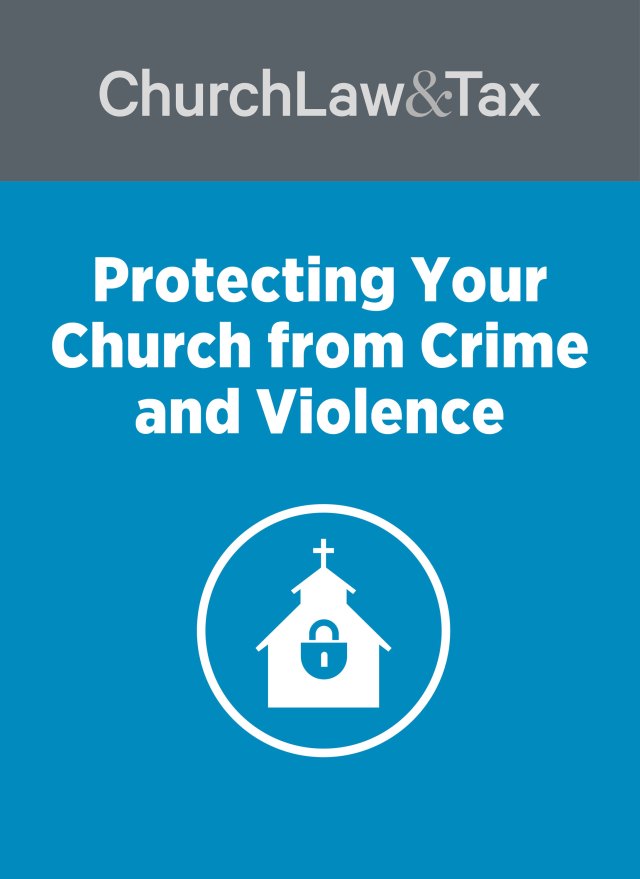Scenario
A church takes 25 adolescents on an overnight trip to another city. The participants all sleep in a church basement. A 14-year-old girl is sexually assaulted by a 17-year-old boy. Can the church be liable for this incident? If so, on what basis?
Churches can use reasonable care in selecting workers, but still be liable for injuries sustained during church activities on the basis of negligent supervision. The term negligence means carelessness or a failure to exercise reasonable care. Negligent supervision, then, refers to a failure to exercise reasonable care in the supervision of church workers and church activities. Churches have been sued on the basis of negligent supervision in a variety of contexts, but the most common examples are the molestation of children, sexual misconduct between clergy and adult counselees, and injuries to adults and minors on church property or during church-sponsored trips.
Sexual misconduct by clergy with adult counselees
Several courts have concluded that they are not barred by the first amendment from finding churches liable on the basis of negligent supervision for the sexual misconduct of pastors.
Here are some procedures that some churches have implemented to reduce this risk:
- Require a third person to be present during all opposite sex counseling sessions.
- Require a third person to be present during opposite sex counseling sessions occurring on church premises during non-office hours, or off of church premises.
- Limit the number of opposite sex counseling sessions, and the duration of each session.
- Require counseling to occur in rooms that are visible to other staff members, either because of a window or an open door.
- Conduct counseling by telephone.
- Install a video camera (with no audio feed) in the room where counseling will occur so counseling sessions can be monitored by another staff member.
- Refer persons desiring counseling to local professional counselors.
- Require that women provide counseling services to women.
- Some courts have concluded that the first amendment’s “non-establishment of religion” and “free exercise of religion” clauses prevent the civil courts from resolving negligent supervision claims involving clergy misconduct. To illustrate, the United States Supreme Court observed in a landmark case more than a century ago: “It would therefore also be inappropriate and unconstitutional for this court to determine after the fact that the ecclesiastical authorities negligently supervised or retained the defendant Bishop. Any award of damages would have a chilling effect leading indirectly to state control over the future conduct of affairs of a religious denomination, a result violative of the text and history of the establishment clause.”
Some courts have noted the inherent difficulty of supervising ministers in the performance of their duties, and in particular their counseling activities. As one court observed:
By the nature of the position, a clergyperson has considerable freedom in religious and administrative leadership in a church. The clergy also require privacy and confidentiality in order to protect the privacy of parishioners. There was no evidence that the supervision provided by [the church] differed from the supervision a reasonable church would provide. Nor was there any evidence of further reasonable supervision that could have prevented [the pastor] from abusing [the victim]. There was not enough evidence from which a reasonable jury could conclude that [the church] negligently supervised [the pastor].
Negligent supervision of church workers—other cases
Churches can be liable on the basis of negligent supervision for injuries that occur during church events and activities whether on or off of church property. Common examples include deaths and injuries occurring during swimming activities, boating, hiking, camping, “lock ins,” and missions trips. In all of such cases, a church may be legally responsible for the death or injury if it was negligent in supervising the event.
Reduce the risks
Churches can reduce the risk of liability based on negligent supervision for injuries not involving sexual misconduct by adopting risk management policies and procedures. Here is a list of risk management strategies that some churches have adopted:
Use an adequate number of adults to supervise all church activities, especially those involving minors. Also, be sure that the adult supervisors are adequately trained to respond to emergencies.
Check with the Red Cross, YMCA, Boy Scouts, and similar organizations to obtain guidelines on the number of adults to use, the training of adult workers (based on the type of activity involved), and other safety procedures. Reliance on such standards makes it much less likely that a church will be guilty of negligent supervision. Be sure that you document your research.
If your church sends minors on a trip that will involve swimming (or the possibility of swimming), be sure you go only to locations that have certified lifeguards on duty.
Avoid high-risk activities
Some activities, such as rope-repelling, explosives, and the use of firearms, are so hazardous that a church may be deemed “strictly liable” if an accident occurs, no matter how much care was exercised in supervising the event.
Negligent supervision is one of the most significant legal risks faced by churches today. It is essential for church leaders to be familiar with this basis of liability so that preventive measures can be evaluated and implemented. Here are some important points to remember:
Negligence is conduct that creates an unreasonable risk of foreseeable harm to the person or property of another and that results in the foreseeable harm. The important point to recognize is that negligence need not be intentional. For example, negligence may include conduct that is simply careless, heedless, or inadvertent.
Churches can use reasonable care in selecting workers, but still be liable for injuries sustained during church activities on the basis of negligent supervision.
A church may be liable on the basis of negligent supervision for a worker’s molestation of a minor if the church was negligent in supervising the worker. Liability based on negligent supervision may be imposed upon a church for the acts of employees and volunteers.
A church may be liable on the basis of negligent supervision for a worker’s molestation of an adult if the church was negligent in the supervision of the worker.
Negligent supervision claims are not limited to cases involving sexual misconduct. They can arise anytime that a church’s failure to exercise reasonable care in the supervision of an employee or volunteer leads to a foreseeable injury.
Churches can reduce the risk of liability based on negligent supervision by adopting appropriate risk management policies and procedures.





